Zero Carbon Care
For a full report on our performance in 2022-23 please read our annual report:
Shine Annual Report 2022-23Technical Appendix (2022-23) available below:
SECR Compliant Carbon Footprint Report Climate Emergency Strategy – Full KPI Report Carbon Footprint Calculation methodCarbon budget
In our Climate Emergency Strategy we stated that we have incorporated the principle of carbon budgets into our plans, calculating a limit on how much carbon dioxide we can emit over the rest of the century, with the emphasis on immediate action.
The Tyndall Centre for Climate Change Research uses the principles of science and equity that are aligned with the commitments in the United Nations Paris Agreement to set budgets at national and sub-national levels, providing local authorities with recommendations that translate the ‘well below 2°C and pursuing 1.5°C’ global temperature target.
We took that method and applied it at our organisational level for Newcastle Hospitals, which showed a requirement to reduce our building energy carbon emissions by 12.8% annually from our 2019 baseline.
This trajectory is shown by the orange line on the graph below.
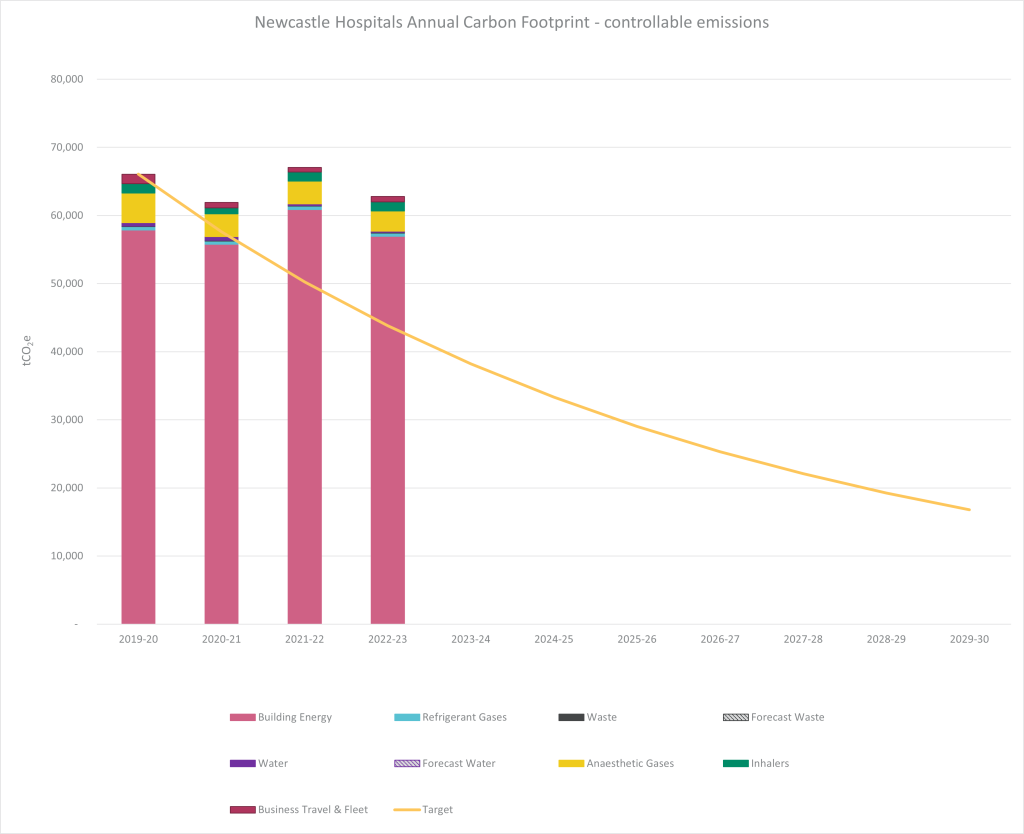
The Newcastle Hospitals Carbon Footprint has decreased slightly compared to last year, but not enough to see us back within our carbon budget.
The majority of the Newcastle Hospitals Carbon Footprint is related to our building energy use. Find out more about our plans here.
Building Energy
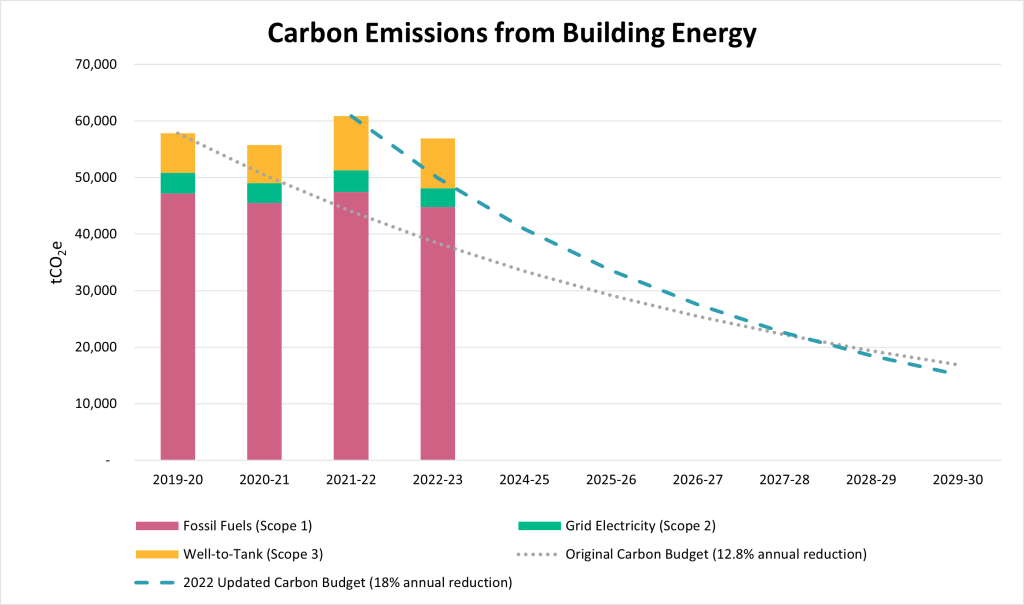
The carbon footprint for building energy in 2022/23 is 56,684 tCO2e, a 7% reduction on 2021/22 but less than half the reduction needed to stay within our science-aligned carbon budget.
Anaesthetic gases

Carbon emissions related to the use of anaesthetic gases plateaued for the year 2021 to 22 following a 23% reduction compared to baseline the year before. Desflurane has been removed from use at the Freeman Hospital this year, the results of which can be seen in the data.
Inhalers
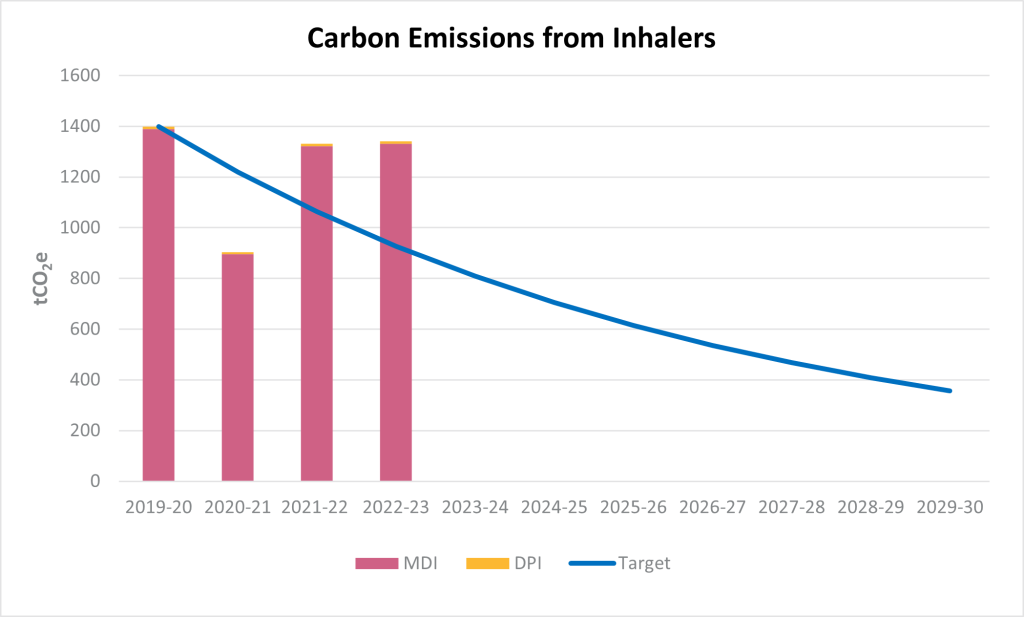
There is just under a 1% increase in carbon emissions related to inhaler use this year.
Clean Air
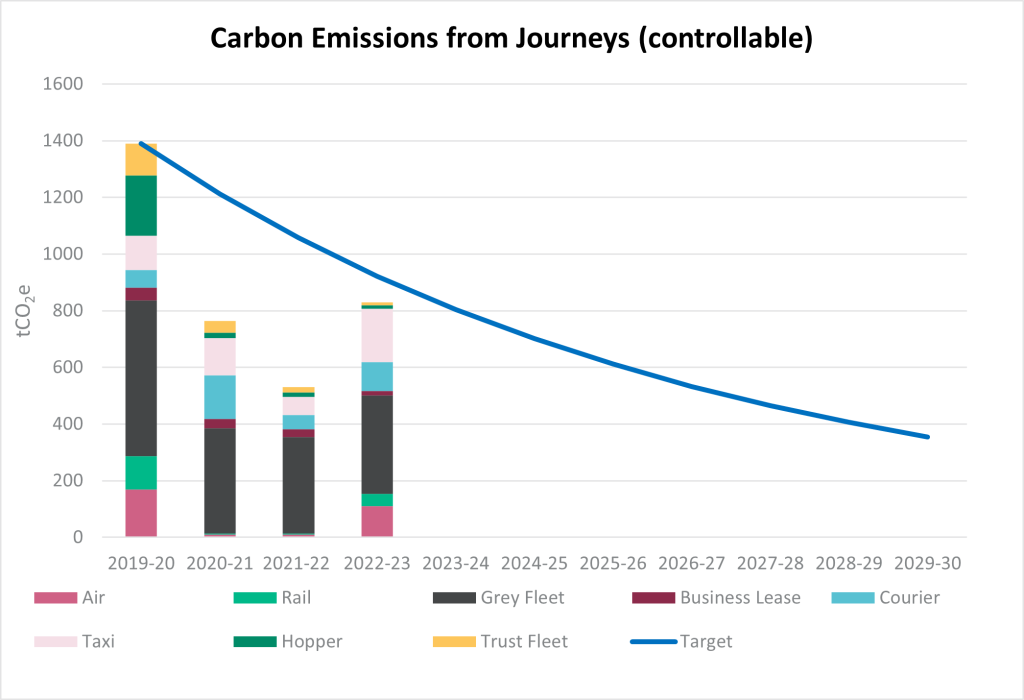
For the first three months of 2022-23 there was a 200% increase in the carbon emissions from air travel compared to the whole of 2021-22, and a 100% increase in the carbon emissions from rail, as we move out of the COVID-19 restrictions on travel.
The overall impact is an increase in the carbon footprint related to journeys compared to last year.
The most significant sources of carbon are from grey fleet, taxis and the courier. Efforts should be focused on transitioning from petrol and diesel for these journeys. A move to stop UK flights would also be beneficial.
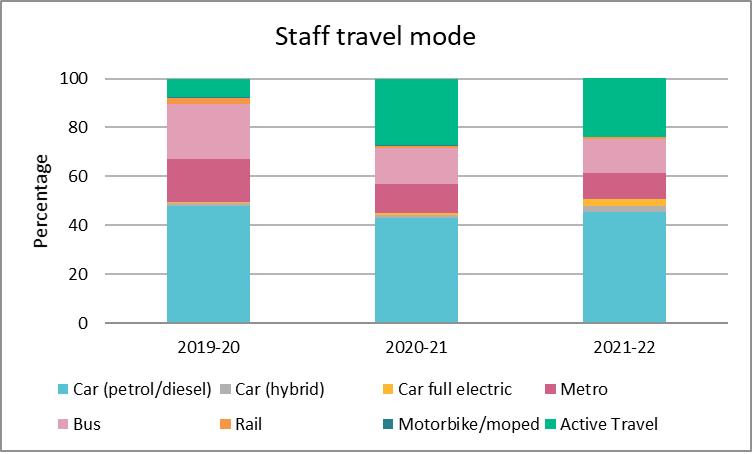
The annual staff travel survey for 2021-22 showed there was a slight increase in the percentage of staff travelling to work by car and slight decrease in the percentage using active travel following a significant change the year before. There has also been a small but significant increase in the number of staff using electric vehicles or hybrids.
Zero Waste
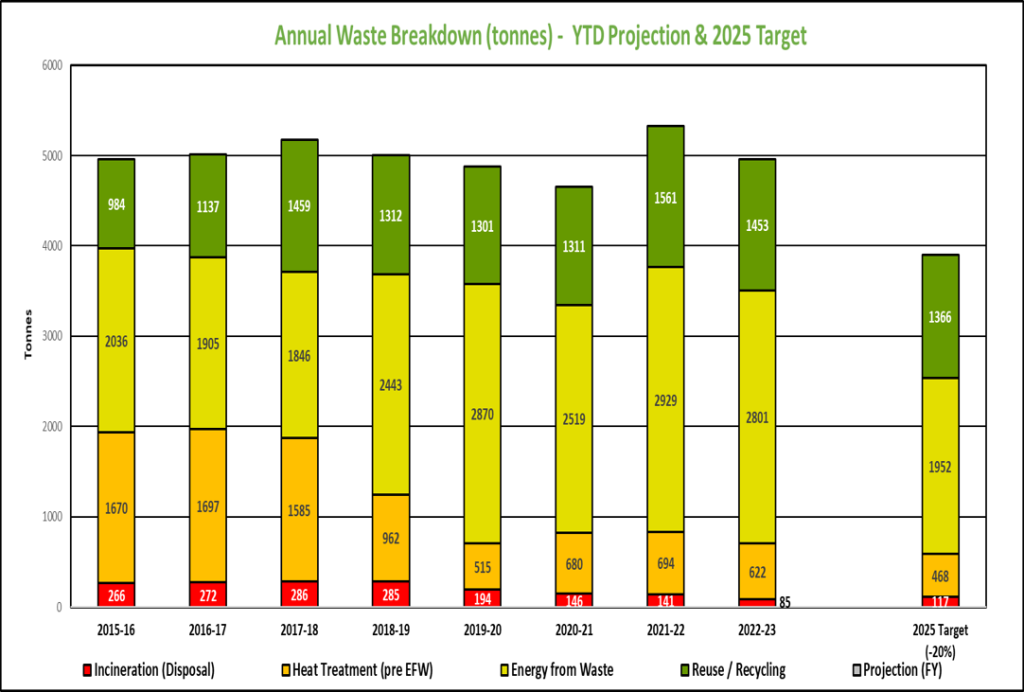
In 2021-22, as the Trust continued to respond to the pandemic, waste volumes increased in line with the demands involved with managing higher patient activity. 5325 tonnes of waste were handled and disposed in 2021-22, the highest volume we have recorded.
This figure included waste arising from new services developed in response to the pandemic, including the Integrated Covid Hub North East (ICHNE) testing laboratory, a number of vaccine centres, and dedicated cataract theatres. The volume increase also aligns with significant increases in patient activity in areas such as the Emergency Department. ICHNE alone accounted for approximately 10% of the Trustwide volume last year.
Volumes overall are lower this year, but are still slightly higher than the baseline year of 2019 (and pre-pandemic).
